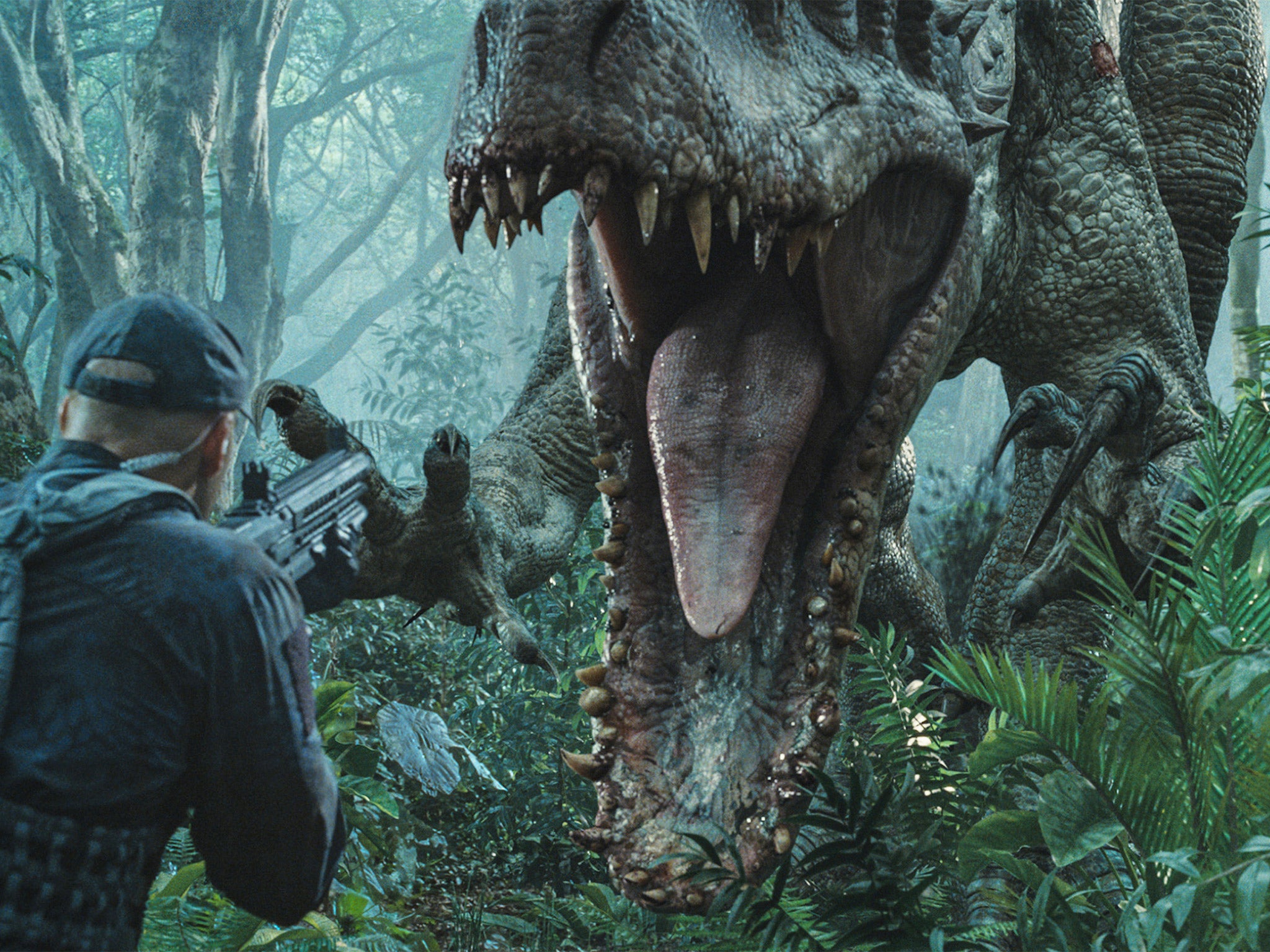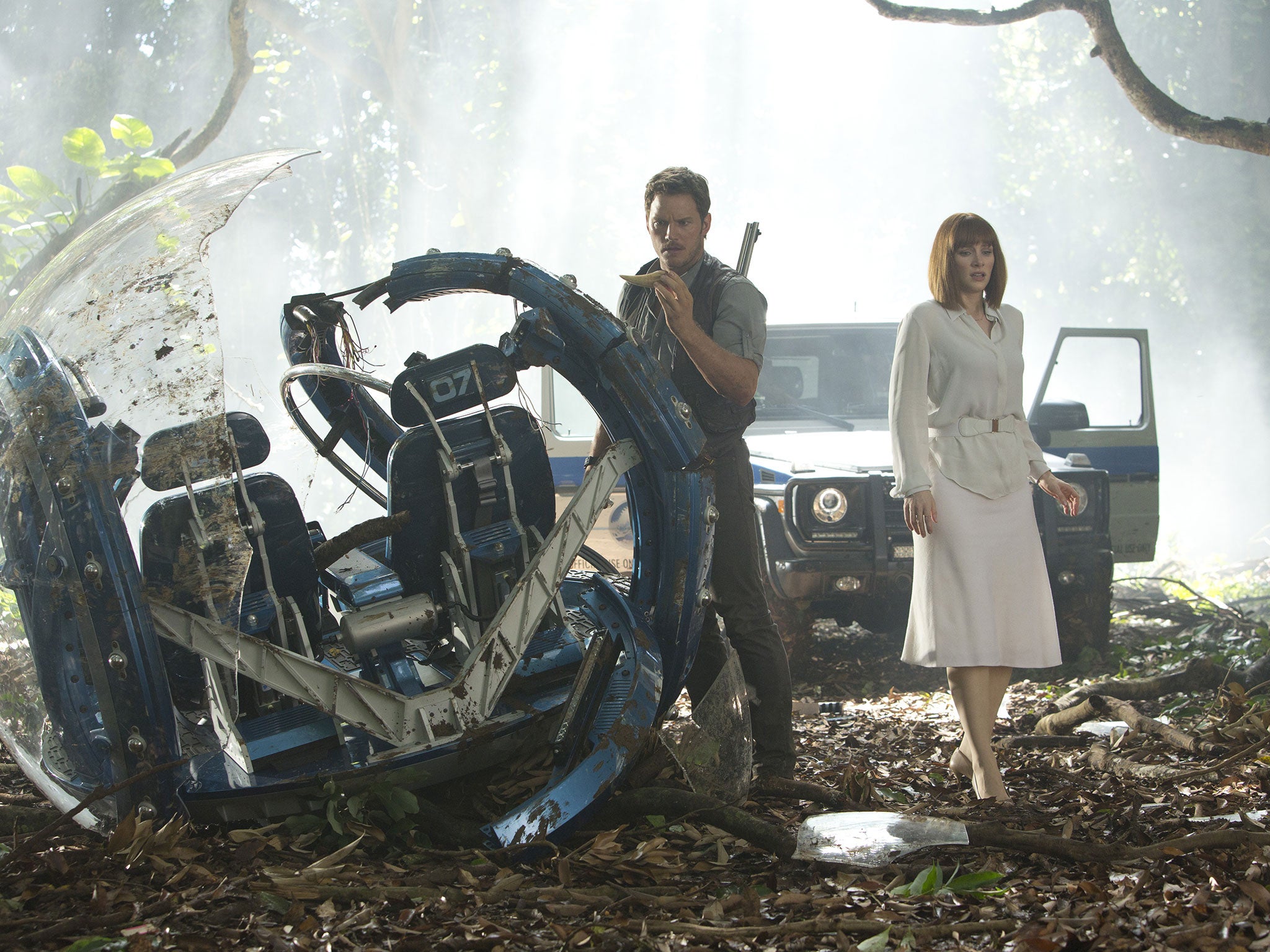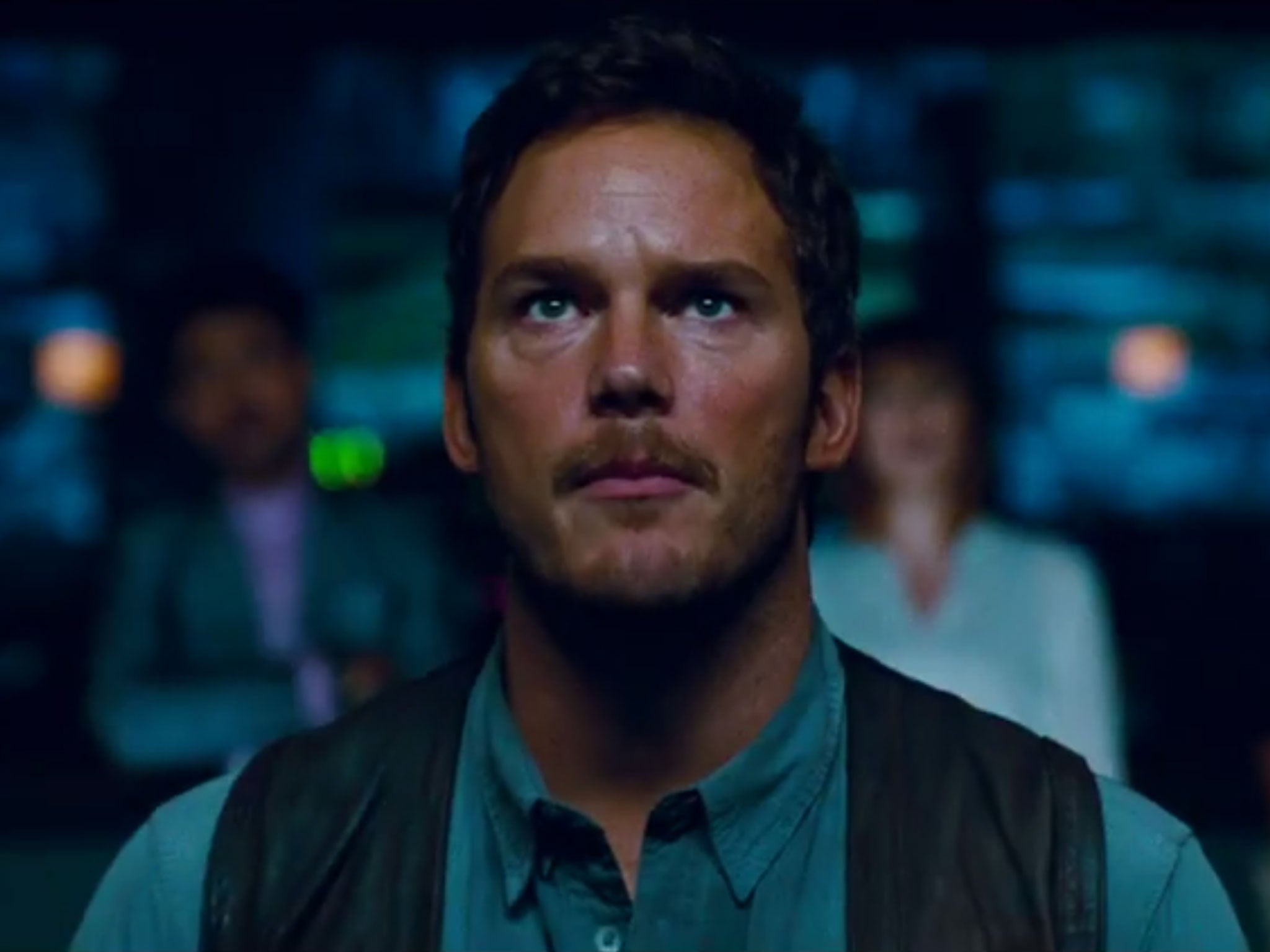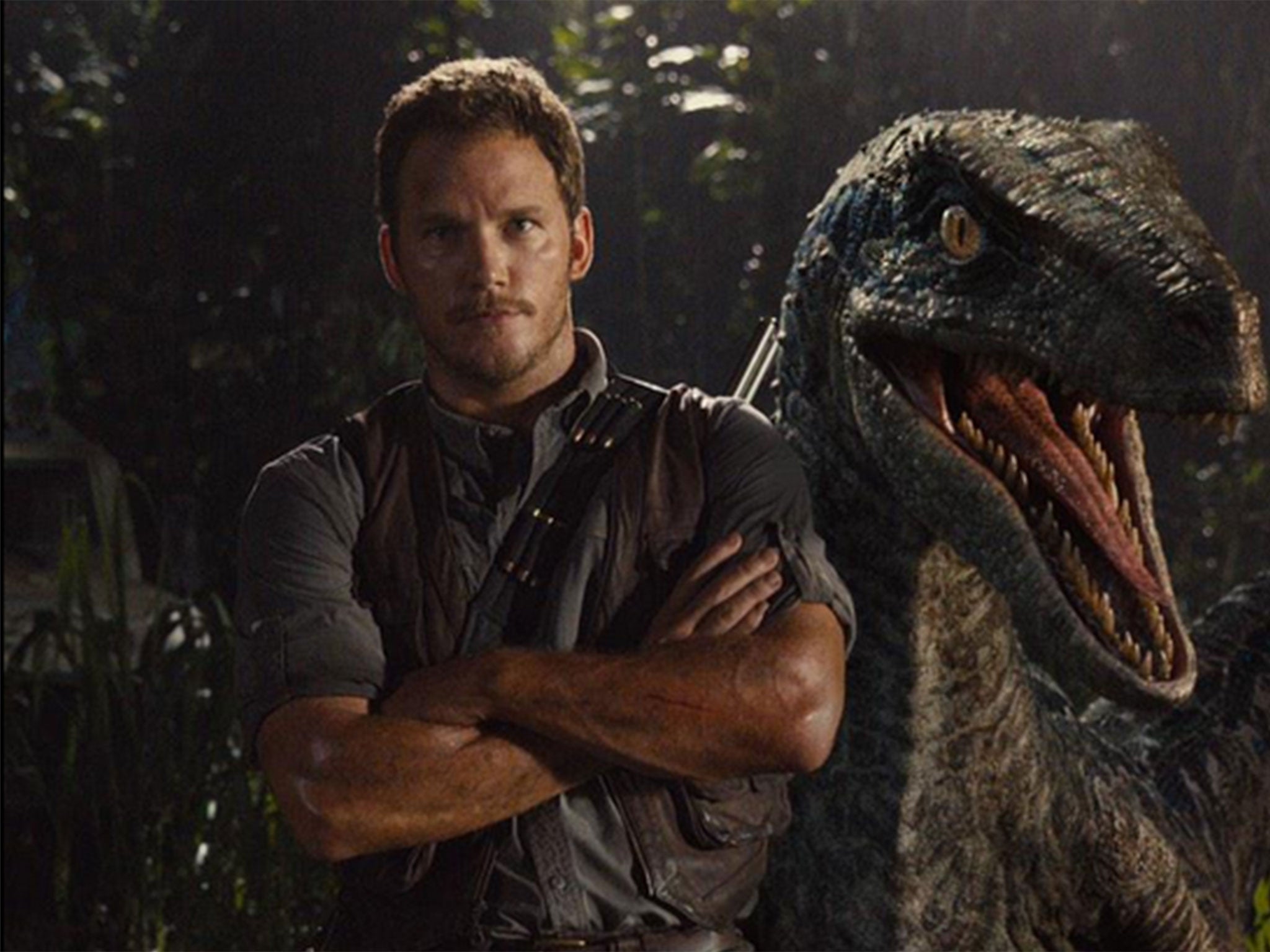Jurassic World: What do the paleontologists think?
The tl;dr of their reaction? 'Jurassic World' is super entertaining — but it could have used more herbivores'

Your support helps us to tell the story
From reproductive rights to climate change to Big Tech, The Independent is on the ground when the story is developing. Whether it's investigating the financials of Elon Musk's pro-Trump PAC or producing our latest documentary, 'The A Word', which shines a light on the American women fighting for reproductive rights, we know how important it is to parse out the facts from the messaging.
At such a critical moment in US history, we need reporters on the ground. Your donation allows us to keep sending journalists to speak to both sides of the story.
The Independent is trusted by Americans across the entire political spectrum. And unlike many other quality news outlets, we choose not to lock Americans out of our reporting and analysis with paywalls. We believe quality journalism should be available to everyone, paid for by those who can afford it.
Your support makes all the difference.Explaining the concept of this review is like explaining a dream. "I went to go see 'Jurassic World' before the film was in theaters, but instead of my friends, I brought two top paleontologists."
Based on a small sample size, the "Jurassic Park" film franchise has a special place in the heart of paleontologists. This is probably why I was able to convince the Smithsonian's National Museum of Natural History Director Kirk Johnson and Curator of Dinosauria Matthew Carrano, both paleontologists, to come to a screening of "Jurassic World."
The tl;dr of their reaction? "Jurassic World" is super entertaining — but it could have used more herbivores.
Here is the paleontologists' review, in the form of a condensed and edited conversation. There are, as you would imagine, mild — but not devastating — spoilers.
You two seemed to really enjoy watching this film. What did you like about it?
Kirk Johnson: Ultimately, at the end of the day, I'm a big kid. Running a museum is a big kid's job. To do a good job with this museum, you have to be curious about all sorts of things, which means I love a kid's movie. I enjoyed the whole absurdity of it. I tend to fall asleep in movies when they're not interesting or exciting. This was funny. It had a nice pace to it.
Matthew Carrano: Especially in a franchise like this, where it's not the first movie. In the first movie, you don't know what you're gonna get yet. So there's the build up and there's like little reveals and then there's the T. Rex scene, and then there's a pause, and then there's raptors. As soon as you're done with that movie, you can't do that anymore. Everybody wants to know "where are the dinosaurs?" from the moment the movie starts. So they acknowledge it.

In the other two sequels, there are long stretches of boring conversation about things you don't care about it. In "Jurassic World," the conversations are almost telegraphic. There's probably about 5 1/2 minutes of conversation between Chris Pratt and Bryce Dallas Howard in the entire movie.
KJ: I did enjoy the addition of the Pterosaurs and the Mesosaur.
MC: Right, a few non-dinosaurs. That's true, having more than just peripheral role.
KJ: They definitely supercharged the Mesosaur and made the Pterosaurs way stronger than they would have been in real life.
MC: Yeah. Pterosours could do you damage, but it's hard to believe a Pterosaur could lift a person. They're not that strong. Their bones are like paper. It's hard to imagine not being able to get away from a Pterosaur. You could crush one, probably.
KJ: And their claws aren't like that.
MC: They're not eagles. That's the other thing, too. They're not actually animals that run around and grab things with their claws the way raptors do today. They're mouth predators. If they can't pick you up with their mouth, they're not going to eat you. And a lot of Pterosaurs, their neck bones are not thick. They probably can't pick up a person. Their feet are not — I wouldn't imagine it to be the equivalent of an eagle. They basically are flat footed.

KJ: They're fishing.
MC: Bug eating. The average Pterosaur is much smaller. It's the same thing as the Velociraptor. And the Mesosaur is substantially larger than most Mesosaurs.
KJ: Twice-ish.
MC: Nice to see some marine things. Although I'd love to know how you get [a Mesosaur] out of a mosquito. How do you get the blood out of a sea creature out of a mosquito?
What's changed in dinosaur science between "Jurassic Park" and "Jurassic World"?
KJ: The number of dinosaurs we know has just, like, skyrocketed.
MC: Every six or seven weeks, you get a new dinosaur. And that pace has been going up for 20 years.
KJ: If you drive a direct connection between places putting value in dinosaurs and hiring dinosaur scientists, and then dinosaur science finding new dinosaurs, there's almost something like a direct cause and effect between something like "Jurassic Park" and this incredible number of new dinosaurs.

Of all those newly discovered dinosaurs since the last installment of the series, which one should have been in "Jurassic World"?
KJ: Deinocheirus. A gigantic clawed duck thing. A lot of the cool weird ones are herbivores.
MC: Every single kind of carnivore is in there, right? With the herbivores, it's "we've got our horns one, we have our armor one, we have our longneck one, and we don't really care how many."
We've probably discovered about 4 percent of all the dinosaurs that ever existed. They should be just making these dinosaurs like "holy cow, what's that?" And they would all be dinosaurs you've never heard of. They could say, "Well it's kind of like a stegosaurus, but it's got all this other junk on it. I guess it's a ... " And they could just start naming new dinosaurs.
On the Indominus Rex, the made-up hybrid villain "dinosaur."
KJ: It basically looks like a supercharged Allosaurus. But it had bird raptor claws. Did you notice that? Those are eagle claws, they weren't dinosaur claws.
MC: And then it had sort of like a Bellusaur head with all these knobs on it.
KJ: It looks like a dinosaur, basically. It looked like you could easily find that.

MC: In the technical details no, but there are giant long-armed predatory dinosaurs. So you don't even need to get that weird about it. Interestingly, the color changing, that was in the book, the first book. There's a dinosaur in the first book called Carnotaurus. Which of course we don't know what color it was. But in the first "Jurassic Park" book, it was a color-changing dinosaur, which they only found out after they made it. It just turned out to be a camouflaged dinosaur. They got rid of it in the first movie originally, but they brought the concept back now.
On the film's choice to explain away the accuracy of "Jurassic World's" dinosaurs by saying that none of the park's creatures are "natural."
MC: I loved that, right? It was the "scientist, shut up" moment. B.D. Wong's character says something like: "You always wanted more teeth and more this, if we did it the way they were supposed to be they would look completely different." So the idea is, they don't have feathers on purpose. At least he provides an answer, right?
On the portrayal of scientists in the film.
KJ: This was the first one with no paleontologists in it?
MC: Yeah.
KJ: In the first (movie), there's the famous line, "I need the opinion of a paleobotanist." Which is the first and only time the word "paleobotany" has ever been uttered in a movie. As a paleobotanist I was —
MC: It was a high-water mark.
KJ: This one, there was, like, the tough guy who was the dinosaur trainer.
MC: But he was like an ex-Navy dude.
KJ: So that might be the big thing, is that they've matured past needing us.
What about the Jurassic plants?
KJ : My big pet peeve is of course, everybody short-shrifts the vegetation in the landscape. Everybody puts dinosaurs in modern landscapes. It's even worse if you call it "Jurassic World." All the implications are that you're going to build this entire world. But really it's not; it's Hawaii with dinosaurs. Dinosaurs didn't really live in the rain forest, because there weren't really rain forests to live in when dinosaurs were around.
MC: And actually if you had an island like that, if you assume that the dinosaurs could have adjusted to eating these things they've never eaten before, etc. It would have take no time at all for those dinosaurs to totally have remade that landscape, like elephants today. Elephants hate trees; they just start pulling them down. Elephants are engineering the landscape, and the big dinosaurs certainly would have done that. It wouldn't have been a dense rain forest for very long. They would have trashed the place.
What did you think about Chris Pratt's trained Velociraptors?
MC: Deeply unlikely, for a whole bunch of reasons. A lot of dinosaurs live in groups, it seems like. I'm sure there are ways of communicating, crocodiles do that today. But the raptors are engaging in wolf-like behavior. Even in mammals that stuff shows up late. It's a pretty new thing.
We want our predators to be as dramatic as possible, right? That whole notion actually came out of science, that they were pack hunters. That's not a movie invention. And it's based on the fact that the very first examples of these raptors that were found, there were several of them that were found together, and a plant eater that was much bigger. The idea was that it was a pack scenario. But that has not really held up in later years for a variety of reasons. But it's been a very catchy thing. The more likely thing is that they were running around eating lizards.
Copyright: Washington Post
Join our commenting forum
Join thought-provoking conversations, follow other Independent readers and see their replies
Comments